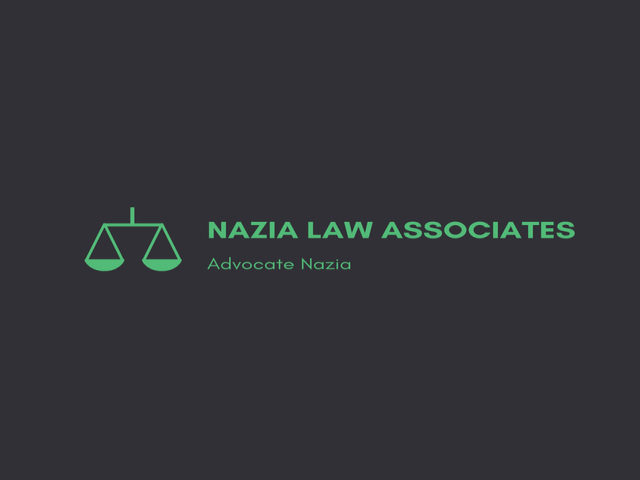Get Know Pakistan law for khula in Pakistan By Top & Leading Lawyer

State and Pakistan law for khula and maintenance:
Regarding Pakistan law for khula maintenance of children in Pakistan Nazia Law Associates is the best firm. The words "those of you in authority" have been interpreted by the Islamic scholars as a reference to the ruler or the Caliph. This is further supported by the tradition of the Prophet (PBUH), who stated: "Each of you is a shepherd, and each is responsible for the flock." The foregoing discussion of the Islamic concept of a ruler raises the ruler's scope in an Islamic State and the limitations, if any, imposed on him.
Pakistan law for khula maintenance of children in Pakistan is the legal right. The answer is simple if we recall the rules established by the Shari 'ah. As a vice-regent of God on earth, his functions' scope is naturally governed by God's Ordinances. This aspect has been emphasized by God Himself in the Qur'än, which ordains: "If any do transgress the limits ordained by God such persons wrong (themselves as well as others)" As such, obedience to the ruler is conditional upon the ruler's obedience to God and His Prophet (PBUH) and not independent of it. Consequently, if the ruler violates God's commands and the Prophet's traditions (PBUH), the ruler loses the right to claim obedience from the subjects. This principle is clearly ordained in the following two sayings of the Prophet (PBUH), who is stated to have said: "There is no obedience to him who disobeys God." "There is no obedience to any creature if it involves disobedience to the Creator"? Regarding the title or the nomenclature of the ruler of an Islamic State, he was known by different names.
Pakistan law for khula maintenance of children in Pakistan is the right given in Islam. He was sometimes referred to as the Amir, sometimes as the Imam, and sometimes as Caliph (or Khilafah). The last-mentioned name, i.e., Caliph is most commonly used for the ruler of the Islamic State because the term Imam is used mainly for the religious leader or those who lead the prayers.
Regarding Pakistan law for khula maintenance of children in Pakistan any other title or nomenclature for the ruler would be in order. It is not the title or the nomenclature but the nature of his functions that matter. Irrespective of the title, one thing is clear that all Islamic sources indicate the absolute necessity to have a Caliph or a ruler and the need to obey his authority subject to the limitations imposed by the Shari 'ah.
Islam has not propagated any particular form of government, and the Prophet (PBUH) did not express his preference for any particular model either. In contemporary times the Caliph may be compared to the President in a Presidential form of government or to a Prime Minister in a parliamentary form of government. Like the modern secular constitutions regarding Pakistan law for khula maintenance of children in Pakistan, Islam also prescribes certain qualifications, though, unlike the written constitutions, they are based on the Quranic ordinances and the Prophet's traditions (PBUH). The qualifications of the Caliph (ruler) that can be deduced from the Qur'än and the Sunnah of the Prophet (PBUH) are that he should be God-fearing, command respect and confidence of the majority, should have Knowledge of Islamic teachings, and should be endowed with the qualities of statesmanship. Further, this does not mean that once elected, and the ruler can act the way he likes without any check.
In fact, as long as the Caliph acts by the injunctions of the Qur'än and the Sunnah, he can demand absolute allegiance.
Through this source, we have received two things, namely, the Qur'an, which contains the Ordinances of God and the Sunnah or the authoritative interpretation and elaboration of those Ordinances through the medium of Prophet Muhammad (PBUH), by his words and deeds, in his capacity as the representative of God. The Qur'än lays down the basic and broad principles on which a Muslim must base his life. Sunnah establishes those principles on which the model system of Islamic life must be based. Consequently, any government that does not conform to the Shari'ah principles enshrined would be illegal. Khilafah means "representation".
According to the Islamic principle, every Muslim is the representative of God on Earth, and he must act following and within limits prescribed by the Divine Authority. As such, the authority of Khilafah is bestowed on the entire Ummah, which is ready to fulfill the conditions of representation after subscribing to the principles of Tawhid and Risalah.
It is clear from this discussion that in Islam, no individual, family, or class can claim the authority of Khilafah regarding khula procedure for overseas Pakistani and maintenance of children in Pakistan: the whole Ummah carries the responsibilities of the Khilafah and each one of its members shares in it. As such, any individual who fulfills the basic qualifications can become the ruler of the State. This concept alone negates the doctrine of hereditary rulers, by whatever name is called.

Technique of Court Marriage in Pakistan For Couple By best Lawyer
- Advocate Jamila the lawful specialist organization of court marriage says that the mentality during the system of court marriage in Pakistan

Know Process of Abortion on demand By Attorney in Lahohre
- Advocate Jamila the Attorney in Lahore Pakistan from the best law firm in Lahore Pakistan says that Infanticide mostly female and abortion

Hire Best Advocate in Lahore Pakistan For Appeal in Court
- To document advances through advocates in Lahore Pakistan of a law office in Pakistan you may contact Jamila Law Associates.

Get Know Tips after online nikah service in Lahore By Best Lawyer
- Advocate Jamila provides the online nikah service in Lahore and gives the best tips for healthy marital life.